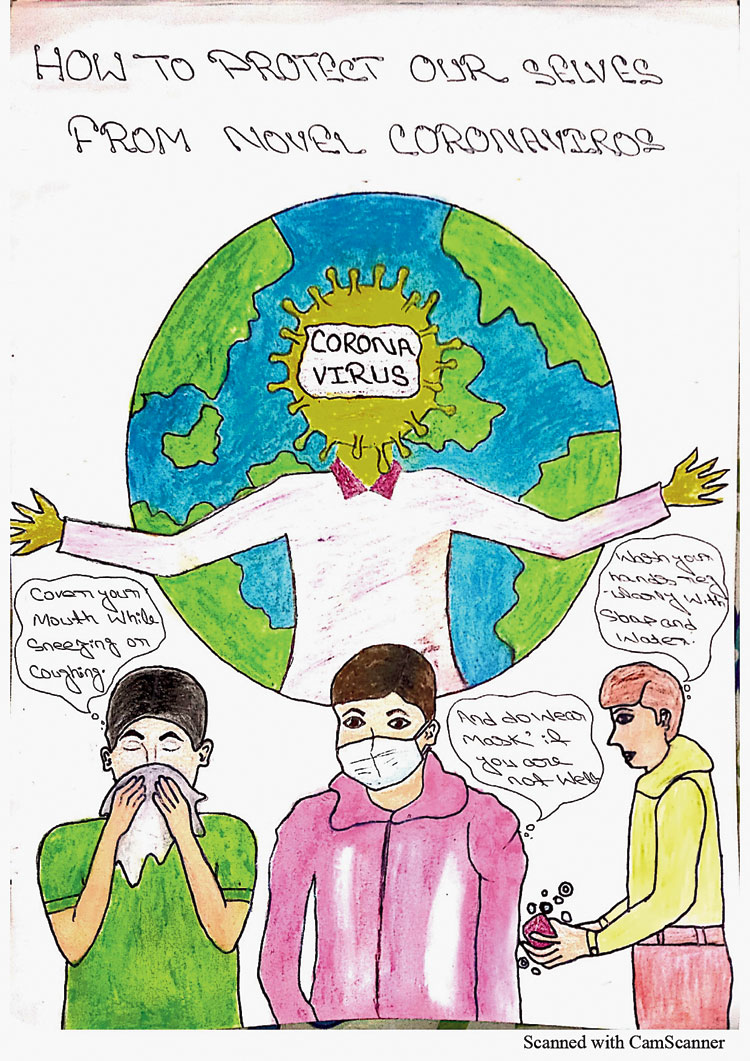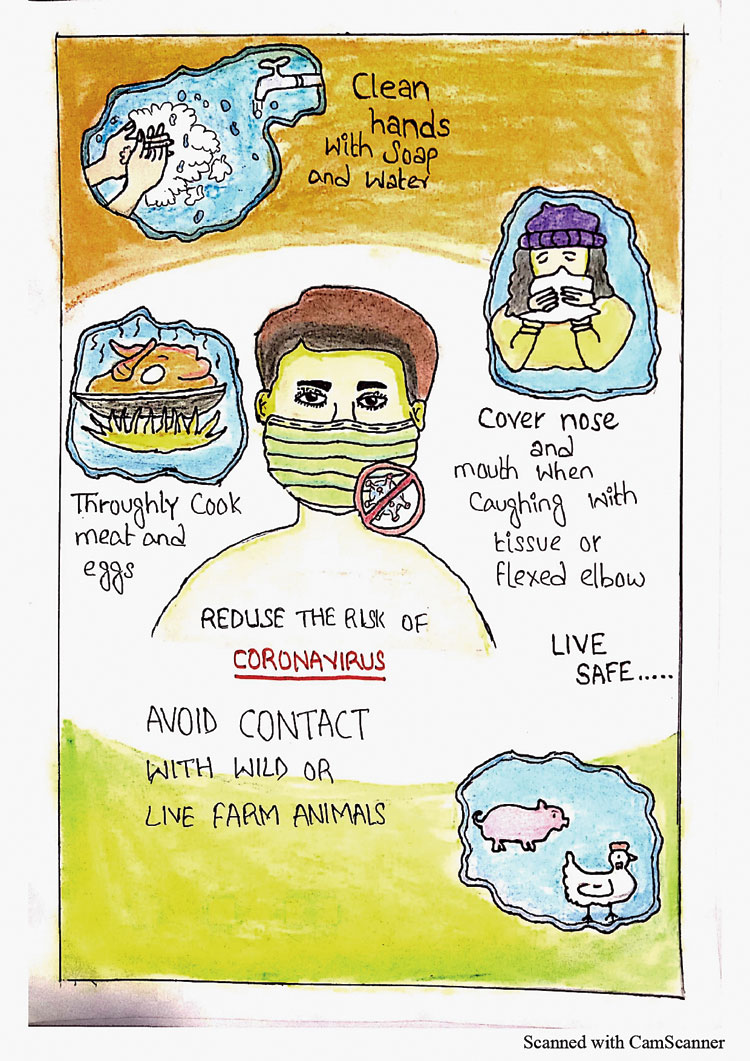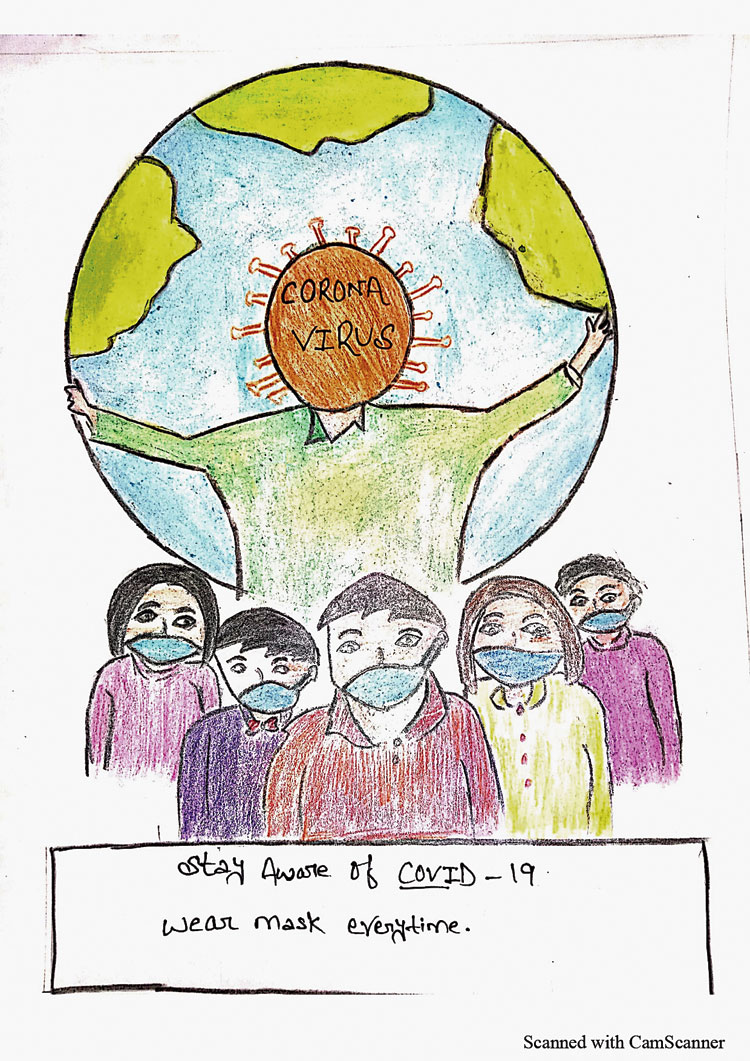Sahana Khatoon, 13, and Jasmine Khatoon,14, have been busy the past few weeks. The neighbours in a Narkeldanga slum have been trying to spread awareness about the need for social distancing during the coronavirus outbreak.
The two are part of a 30-member team of children, led by Aqsaa Nasir, a 20-year-old computer science student. In an initiative backed by CRY, Aqsaa and her team are trying to explain to people the dangers of Covid-19 and the importance of staying at home.

Posters created by the children of a slum in Narkeldanga to spread awareness about social distancing Pictures sourced by the correspondent
Most residents here live in crowded single rooms. They share public toilets that are often unhygienic. The two girls are trying to spread awareness about basic cleanliness and the need to main a safe distance from each other.
“Most families live in cramped rooms in the slums here. When we started spreading awareness, only a few knew what coronavirus was or what social distancing meant,” said Aqsaa, a second-year student of Techno India College of Technology, Rajarhat.
The children have been teaching neighbours the importance of washing hands regularly, not spitting and coughing with their mouths covered.
“My father is a cook in a local eatery. Many people here have to travel long distances for work. I have been teaching them proper hygiene since we got to know about the scary virus ourselves. We would go door to door initially. Now that there is a lockdown, I shout from my doorstep at anyone crowding in our locality. I teach them how to maintain safe distance,” said Sahana, who lives with five members in a single room.

Message about general hygiene
The children have also made posters and artwork to spread the message.“I ensure that my immediate neighbours stay at home. Nobody can leave their home just to loiter around,” Jasmine said.
The team is also spreading awareness through telephone calls and social media.

Instruction to wear masks
“I have a list of 50 phone numbers belonging to residents of slums here. We call at least 10 people every day to spread awareness and check on things. The children also pass the word on to other relatives,” Aqsaa said.
The efforts have paid off. “People would not listen to us initially. Many would not even wash hands. Now they are doing it. We face less resistance,” Sahana said.











